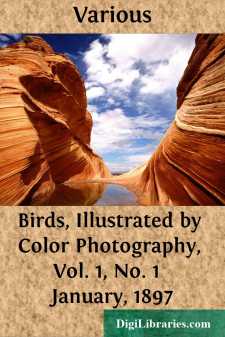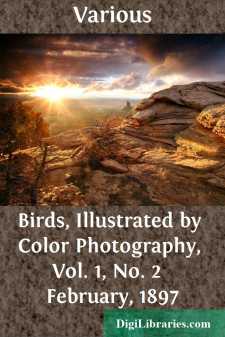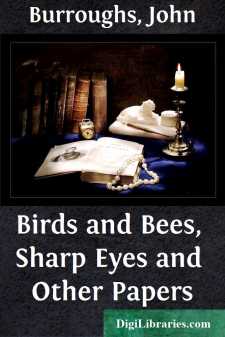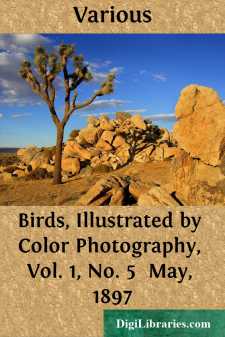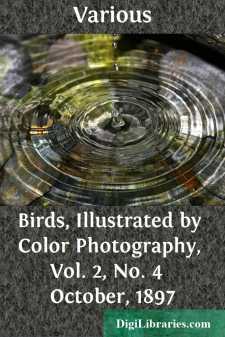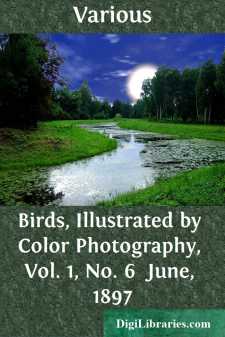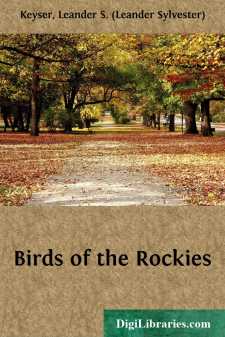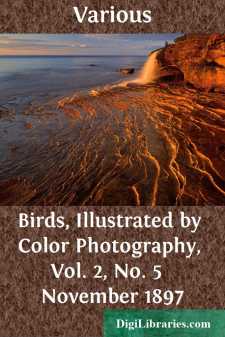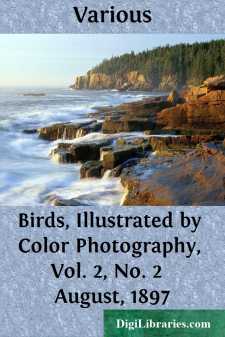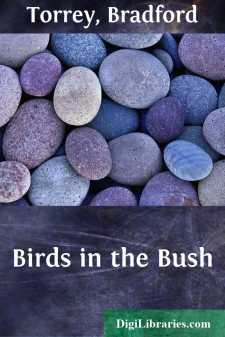Nature
Nature Books
Sort by:
by:
Various
PREFACE. T has become a universal custom to obtain and preserve the likenesses of one’s friends. Photographs are the most popular form of these likenesses, as they give the true exterior outlines and appearance, (except coloring) of the subjects. But how much more popular and useful does photography become, when it can be used as a means of securing plates from which to print photographs in a regular...
more...
by:
Various
THE BLUE JAY. URING about three-fourths of the year the American Jay is an extremely tame, noisy and even obstrusive bird in its habits. As the breeding season approaches he suddenly becomes silent, preparing the nest in the most secluded parts of his native forests, and exercising all his cunning to keep it concealed. He is omniverous but is especially fond of eggs and young birds. The Jay may be...
more...
by:
John Burroughs
BIOGRAPHICAL SKETCH.Nature chose the spring of the year for the time of John Burroughs's birth. A little before the day when the wake-robin shows itself, that the observer might be on hand for the sight, he was born in Roxbury, Delaware County, New York, on the western borders of the Catskill Mountains; the precise date was April 3, 1837. Until 1863 he remained in the country about his native...
more...
by:
Various
NESTING TIME. “There swims no goose so gray, but soon or late,She takes some honest gander for a mate;”There live no birds, however bright or plain,But rear a brood to take their place again.—C. C. M.QUITE the jolliest season of the year, with the birds, is when they begin to require a home, either as a shelter from the weather, a defence against their enemies, or a place to rear and protect...
more...
by:
Various
BIRDS IN CAPTIVITY. It was our intention in this article to give a number of instances of a pathetic nature concerning the sufferings of the various species of birds which it has been, and still is, a habit with many people to keep confined in cages totally inadequate for any other purpose than that of cruelty. The argument that man has no moral right to deprive an innocent creature of liberty will...
more...
by:
Various
BIRD SONG. “I cannot love the man who doth not love,As men love light, the song of happy birds.” T is indeed fitting that the great poets have ever been the best interpreters of the songs of birds. In many of the plays of Shakespeare, especially where the scene is laid in the primeval forest, his most delicious bits of fancy are inspired by the flitting throng. Wordsworth and Tennyson, and many of...
more...
BRIEF FOREWORD With sincere pleasure the author would acknowledge the uniform courtesy of editors and publishers in permitting him to reprint many of the articles comprised in this volume, from the various periodicals in which they first appeared. He also desires to express his special indebtedness to Mr. Charles E. Aiken, of Colorado Springs, Colorado, whose contributions to the ornithology of the...
more...
by:
Various
JOHN JAMES AUDUBON. OHN JAMES AUDUBON has always been a favorite with the writer, for the invincibleness of his love of Nature and of birds is only equalled by the spontaneous freshness of his style, springing from an affectionate and joyous nature. Recently there was found by accident, in an old calf-skin bound volume, an autobiography of the naturalist. It is entitled “Audubon’s Story of his...
more...
by:
Various
BIRD SONG. E made several early morning excursions into the woods and fields during the month of June, and were abundantly rewarded in many ways—by beholding the gracious awakening of Nature in her various forms, kissed into renewed activity by the radiance of morn; by the sweet smelling air filled with the perfume of a multitude of opening flowers which had drunk again the dew of heaven; by the...
more...
by:
Bradford Torrey
ON BOSTON COMMON.Nuns fret not at their convent's narrow room;And hermits are contented with their cells;And students with their pensive citadels:Maids at the wheel, the weaver at his loom,Sit blithe and happy; bees that soar for bloom,High as the highest Peak of Furness-fells,Will murmur by the hour in foxglove bells:In truth, the prison unto which we doomOurselves, no prison is: and hence for...
more...


